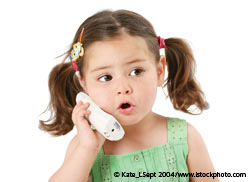Talking the talk
Add to My Folder
Kate Freeman talks about the importance of developing children’s communication skills in the early years

Why it’s good to talk
The transition from babbling baby to talkative toddler seems like a miracle, and while a massive explosion in communication development takes place during the first three years of life, this does not happen all at once. It requires help and encouragement from everybody.
Learning to talk is the most complicated process our brains have to master, yet it is too often taken for granted. Recent evidence suggests that in some areas of the UK, a massive 40 to 50 per cent of children are starting school without the communication skills they need to learn, achieve and make friends.
What do we mean by speech, language and communication needs?
Imagine living in a world where all around you people spoke in a language that you did not understand, and no matter how hard you tried to learn, it still meant nothing to you. Or imagine the frustration of seeing a younger brother or sister talking and laughing with your parents when you cannot even understand what they are saying. This is what it can be like to have speech, language and communication needs. The term covers a whole range of problems including:
- difficulty listening and attending
- difficulty relating to other people
- limited understanding of what others say
- difficulty learning and using new words
- difficulty putting words together to make whole sentences
- unclear speech
- difficulty getting words out coherently or stammering
- a hoarse or croaky voice
- difficulty taking part in conversations.
Published 15 October 2015
Reviews
You need to be signed in to place a review.